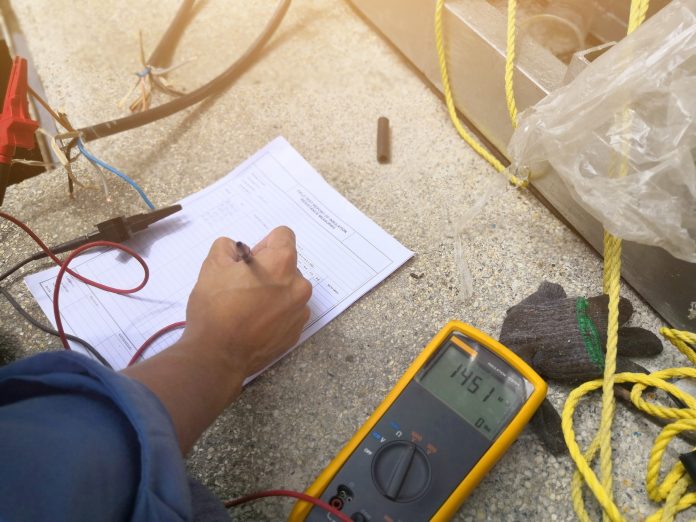The UK government needs to tackle the worsening energy crisis – but its current energy strategy is lacking efficient solutions
Currently, if the UK government decided to prioritise energy efficiency, this could cut emissions and bills by as much as 40%, but this continues to be absent from the Government energy strategy agenda.
Across the UK, millions are unsure whether they will be able to afford to heat their homes in the upcoming winter, and a secure supply of energy for the future will take the time that those struggling to pay energy bills cannot afford.
Placing energy efficiency at the forefront of its energy strategy for the coming months would enable the Government to address supply issues and reduce carbon emissions.
Therefore, looking at research by Grundfos, a global leader in advanced pump solutions and water technologies, the UK can improve its energy efficiency through infrastructure and financial assistance to the public to combat the energy crisis, as research reveals its potential to cut carbon emissions and costs.
It’s four measures that the Government could introduce to drive down heating costs for consumers and businesses include:
1. Mandate energy efficiency assessments for all building heating systems within a year
Ofgem estimates that almost half of energy consumed in the UK is used to provide heat, yet inefficient heating systems collectively cost households £2.3bn per year in wasted energy.
The Government must mandate energy efficiency assessments for all building heating systems within 24 months, with a commitment to assessing 40% of buildings within 12 months.
The current timeline of all rental properties requiring an energy efficiency rating of C or above by 2028 is too long and does nothing to address the two-thirds of UK homes that are privately owned.
Moreover, Energy Assessment Surveys focus disproportionately on insulation and therefore fail to address energy inefficiencies at source.
Grundfos has calculated that across Europe, inefficient circulator pumps cost €7.5bn and 3.4m tonnes of CO2 in wasted energy. Replacing these pumps with newer models could therefore facilitate savings of 5% on electricity bills.
2. Mandate installation best practice in the 1.7m annual UK boiler retrofits
UK homes rank among Europe’s worst for energy efficiency. Given that 80% of buildings that will be used by 2050 have already been built, retrofitting must be a critical pillar of the Government’s energy strategy.
Installation best practices for UK boilers should focus on innovative approaches such as hydraulic balancing, which alone can improve energy efficiency by as much as 20% (FH Münster – University of Applied Sciences).
Across the 1.7 million UK boilers retrofitted each year, this is a significant opportunity to maximise efficiency and minimise cost.
3. Mandate all local authorities to prepare a heat optimisation plan for heat networks by 2024
District heating that uses renewable energy and surplus heat as its main energy sources is the most cost-effective way to decarbonise the heating sector. Planning a rollout of heat networks, a UK equivalent of the EU’s Fit-for-55 plan, across all UK local authorities would give planning security to market players and thereby make investment a more appealing prospect.
This should be accompanied by consumer incentives to choose heat networks and disincentives for fossil fuel boilers, followed by an outright ban on the latter by 2030.
4. Launch a public awareness campaign on the benefits of a regular heating system service
Grundfos’ final policy recommendation addresses public awareness around energy efficiency, which has a long way to go to catch up to awareness around the climate emergency, despite the inextricable links between the two issues.
More than a quarter (26%) of consumers never monitor the energy performance of their heating system, while a further 40% only check it once a year.
A public-facing campaign that raises awareness of consumers’ opportunities to improve efficiency in the energy strategy would be a vital complement to the policy changes around energy infrastructure.
“The payoff, for people’s finances as well as the UK’s carbon footprint, would be both quick and considerable”
Glynn Williams, UK Country Director at Grundfos, commented: “While fiscal relief will benefit households and businesses in the short term, the omission of energy efficiency from the Government’s messaging around the crisis suggests a glaring hole in its strategy.
“Balancing their heating systems, for instance, could save customers £150 per year on average, for an initial investment of around £120. The payoff, for people’s finances as well as the UK’s carbon footprint, would be both quick and considerable. Measures such as this will be vital for ensuring that people do not have to choose between keeping costs down and keeping warm this winter.
“These recommendations leverage Grundfos’ global experience as a solutions provider for a range of energy efficiency issues, while being conscious of the challenges faced by the UK during this time. We are working to engage the Government on these policy recommendations, so that those struggling most amid the energy crisis will see tangible improvements as soon as possible.”











